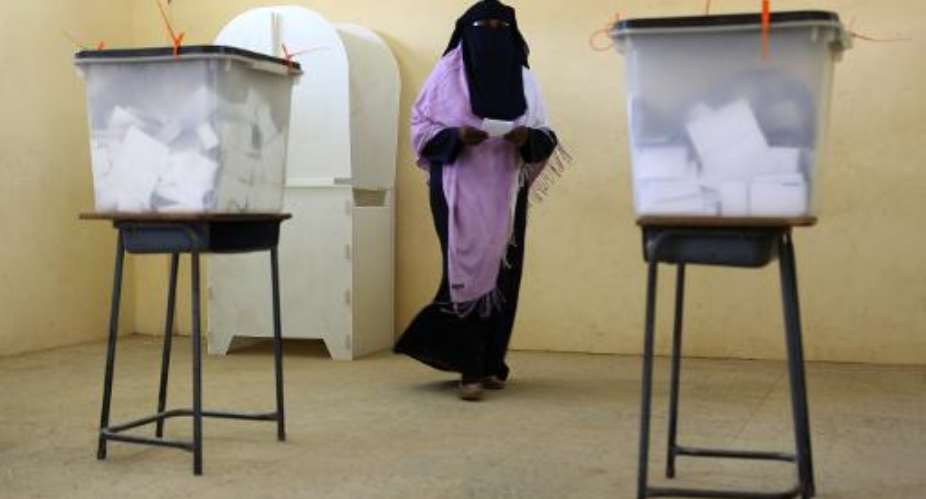Since the introduction of multiparty democracy in Ghana, civil society has been progressively integral to the processof evolvingsustainable infrastructures to support such aspirations. From the engagement with the Electoral Commission to Political Parties, civil society organisations have played diverse roles in reforming the Ghanaian electoral process. These efforts, are largely responsible for the touting of our electoral process as transparent (even though some fine-tuning and tweaking needs to be done).
Despite the relative success in our electoral process, questions are still being raised about some aspects of the process in order to ensure that, the coming 2016 General Elections are organised in a more open and transparent environment than it has ever been done before. For the liberal-minded, these are positive developments, since it would provide stakeholders with the needed atmosphere to deliberate on nuanced issues that are likely to jeopardize the success of the coming elections.
While some political parties are registering their displeasure about the current electoral structures-including the need to create a new voters’ register; others are strongly against such moves. This, I think is the more reason why civil society needs to inject some ‘sanity’ in the whole process. Such that, Ghanaians don’t get caught unawares after a winner is declared in the coming general elections.
Why the involvement of civil society is critical
In their determination to win or latch onto power, political parties can sometimes be ‘too rational’ to the point where national interest becomes a tertiary prerogative. It does not matter whether the nation can be plunged into turmoil as a result of their ‘political choices’, all that matter is power-whether by fair or Machiavellian means. They therefore need credible stakeholders like civil society and non-government institutions to help them navigate these slippery slopes. After all, when ‘push become shove’ violence and insecurity do not make distinctions between party members. Sometimes, it is even innocent souls that tend to bear the greatest brunt of such violent confrontations. We cannot afford to give political parties the latitude to engage in their bickering while tensions continue to mount.
I am glad civil society organisations like the Centre for Democratic Development (CDD), West Africa Network for Peacebuilding (WANEP), Institute for Democratic Governance (IDEG) and other civil society and non-government organisations are trying to work out modalities to make the coming elections relatively free and fair.We need to make political parties realise that, the security and safety of this nation is beyond and above any political organisation or grouping. We cannot therefore allow political parties to ‘hijack’ the democratic process, when it would not inure to the overall security and safety of the nation. The time to have these conversations is now. At least, the Electoral Commission needs to take every action to win the confidence of all political parties and the general public. Gray areas that need further explaining must be done to clear the air of any doubts and suspicions.
Political party activists do not have to carry guns, machetes and knives to polling stations before they can vouch for the credibility of an electoral process. What unfolded, during the Talensi bye-elections has left a sour taste in the mouth of most pacifists in Ghana. If indeed, Talensi was viewed as a dress-rehearsal for what is to unfold in the coming general elections, then we have a long way to go. This is the time to engage in vigorous broader consultations, to ensure that areas that need fine-tuning in our electoral process are readily dealt with, before we find ourselves in murky waters. The stakes in the coming general elections are too high to allow only political parties to define our destinies.
By: Inusah Mohammed Awall
Twitter: @Wagoooni





 Monday’s downpour causes massive gridlock on Mallam-Kasoa highway persisting int...
Monday’s downpour causes massive gridlock on Mallam-Kasoa highway persisting int...
 Mallam-Kasoa flood: We’re working to find solutions – Weija-Gbawe Assembly
Mallam-Kasoa flood: We’re working to find solutions – Weija-Gbawe Assembly
 Over 1 million Ghanaians expected to face food insecurity — WFP report
Over 1 million Ghanaians expected to face food insecurity — WFP report
 Kukuom registration centre chaos: Police arrest one suspect
Kukuom registration centre chaos: Police arrest one suspect
 Sahelian terrorists use Ghana as a transitory safe haven, they mingle with us – ...
Sahelian terrorists use Ghana as a transitory safe haven, they mingle with us – ...
 Nursing and teacher trainee allowances to be paid by next week — Bawumia
Nursing and teacher trainee allowances to be paid by next week — Bawumia
 Guarantor system being used to facilitate registration of unqualified persons — ...
Guarantor system being used to facilitate registration of unqualified persons — ...
 Amplify our campaign against registration of minors, foreigners — EC to media
Amplify our campaign against registration of minors, foreigners — EC to media
 I'm not going to pay churches; that was just a joke — Bawumia
I'm not going to pay churches; that was just a joke — Bawumia
 My comment about paying churches just a joke — Bawumia
My comment about paying churches just a joke — Bawumia
